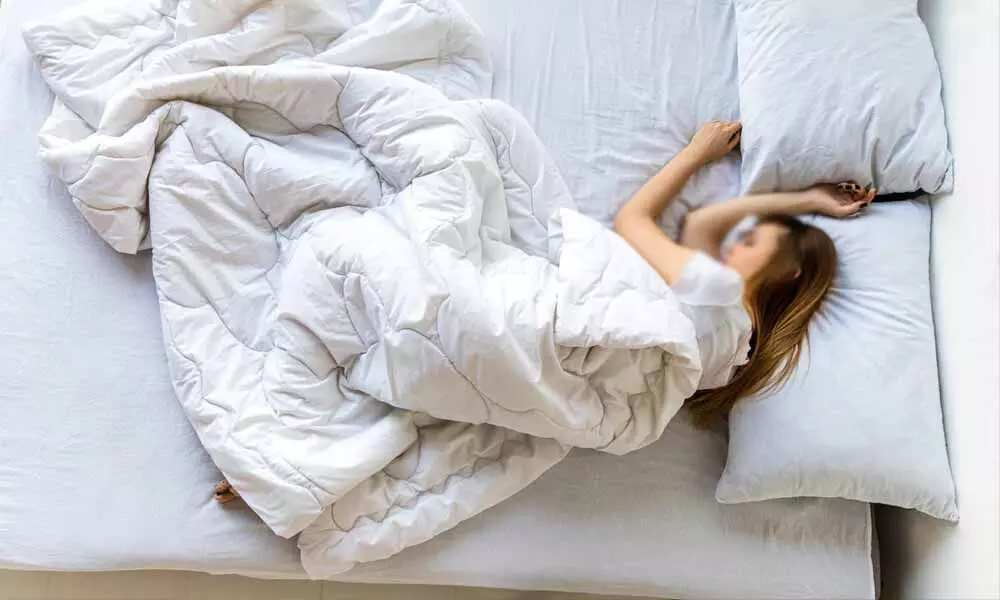Weighted blankets found to improve sleep of insomnia patients

For representational purpose
Using weighted chain blankets may lead to better sleep maintenance, a higher daytime activity level, and reduced symptoms of fatigue, depression and anxiety among insomnia patients with psychiatric disorders, says a study.
London: Using weighted chain blankets may lead to better sleep maintenance, a higher daytime activity level, and reduced symptoms of fatigue, depression and anxiety among insomnia patients with psychiatric disorders, says a study.
The researchers found that participants in the weighted blanket group were almost 26 times more likely to experience a decrease of 50 per cent or more in their insomnia severity compared with the control group, and they were nearly 20 times more likely to achieve remission of their insomnia.
Positive results were maintained during a 12-month, open follow-up phase of the study.
"A suggested explanation for the calming and sleep-promoting effect is the pressure that the chain blanket applies on different points on the body, stimulating the sensation of touch and the sense of muscles and joints, similar to acupressure and massage," said principle investigator Mats Alder, consultant psychiatrist at the Karolinska Institutet in Stockholm, Sweden.
"There is evidence suggesting that deep pressure stimulation increases parasympathetic arousal of the autonomic nervous system and at the same time reduces sympathetic arousal, which is considered to be the cause of the calming effect."
The study, published in the Journal of Clinical Sleep Medicine, involved 120 adults previously diagnosed with clinical insomnia and a co-occurring psychiatric disorder: major depressive disorder, bipolar disorder, attention deficit hyperactivity disorder, or generalised anxiety disorder.
Participants were randomised to sleep for four weeks at home with either a chain-weighted blanket or a control blanket.
Participants assigned to the weighted blanket group tried an 8-kg chain blanket at the clinic.
Ten participants found it to be too heavy and received a 6-kg blanket instead.
Participants in the control group slept with a light plastic chain blanket of 1.5 kg. Change in insomnia severity, the primary outcome, was evaluated using the Insomnia Severity Index.
Wrist actigraphy was used to estimate sleep and daytime activity levels.
Nearly 60 per cent of weighted blanket users had a positive response with a decrease of 50 per cent or more in their Insomnia Severity Index score from the baseline to the four-week endpoint, compared with 5.4 per cent of the control group.
Remission, a score of seven or less on the Insomnia Severity Index scale, was 42.2 per cent in the weighted blanket group, compared with 3.6 per cent in the control group.
After the initial four-week study, all participants had the option to use the weighted blanket for a 12-month follow-up phase.
Participants who switched from the control blanket to a weighted blanket experienced a similar effect as patients who used the weighted blanket initially, said the study.










